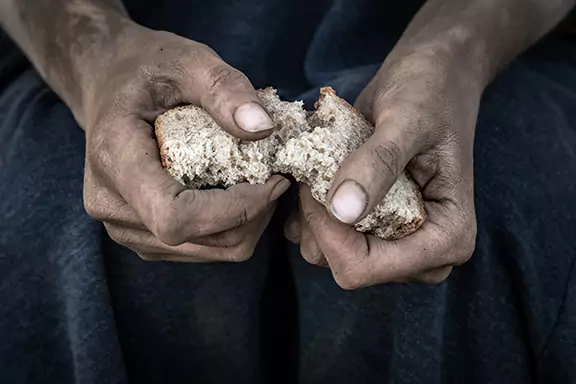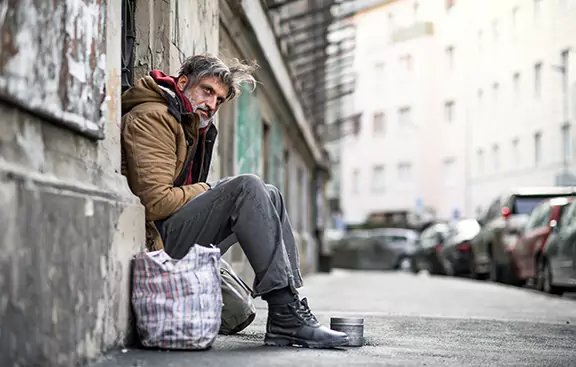So you’ve found yourself in the difficult situation of having to live homeless. It’s scary, uncomfortable, and dangerous. But there are things you could do to stay as safe as possible while getting back on your feet. This blog post will give you practical tips to protect yourself and your belongings, find safe places to fall asleep, find food and healthcare, and avoid violence and crime.
We’re going to cover strategies used by others who have been in your shoes. Living on the streets doesn’t mean you have to feel helpless. Arm yourself with knowledge and resources so you can deal with this time while staying healthy and keeping safe. With some grit and smarts, you’re bound to get yourself into a better situation.
Finding Shelter
When living on the streets, finding safe shelter is essential. Check with local homeless shelters or outreach programs to find temporary housing options. Some churches or nonprofits could offer emergency shelter space too. If shelters aren’t available, look for hidden areas away from public view or near a decent neighborhood where you could set up a makeshift shelter.
Abandoned buildings are not ideal and often illegal, so definitely avoid them. Instead, scout places like viaducts, alleyways, or some wooded areas. Look for spots that provide protection from the elements as well as privacy. An overpass, space under a porch, or area behind a dumpster can work in a pinch. If possible, be as close to local law enforcement as you’re able to get.
Once you find a suitable spot, gather materials to construct a basic shelter. Cardboard, tarps, blankets, a sleeping bag if possible, and plastic sheeting can be used to create walls and a roof. Find a way to securely fasten materials together, whether you’re using rope, bungee cords, duct tape or cable ties. Create an entrance that could be closed off for safety and warmth.
If possible, avoid setting up your shelter in the same location every night. Rotating between a couple of your trusted spots makes you less vulnerable to theft or harassment. Always trust your instincts—if an area makes you feel unsafe, keep looking. Your security and well-being should be your main priorities when living on the streets.
Staying Healthy and Hygienic
Living on the streets often means limited access to basic necessities like showers, sinks, and toilets. But maintaining good hygiene is critical for your health and safety.
Make use of public resources whenever possible. Visit shelters, drop-in centers, and community centers that offer showers, laundry, and bathrooms. Some parks also have facilities you can use. Try to shower at least once a week and wash your clothes regularly.
If those options aren’t available, use baby wipes to clean yourself off and wash clothes in a sink using soap. You can also wash clothes in a bucket or container and then hang them up to air dry. Stock up on things like wet wipes, toothbrushes, toothpaste, deodorant, toilet paper, hand sanitizer, and feminine hygiene products.
Be very careful about where and how you go to the bathroom. Try to use public toilets when possible and always wash your hands thoroughly afterwards. If that’s not possible, choose a secluded spot, dig a hole at least 200 feet away from any water sources, go do your business, and bury everything properly when you’re done. Pack out any toilet paper.
Getting medical care on the streets could often be challenging, so focus on prevention. Wash your hands frequently, cover your coughs and sneezes, and avoid close contact with people who are sick. Eating healthy, staying warm, and getting enough rest will also help boost your immunity. Visit a doctor right away if you notice any symptoms.
Avoiding Dangerous Areas and Situations
Living on the streets will expose you to unsafe areas and situations, so it’s important to be vigilant. Pay attention to your surroundings and trust your instincts—if something feels off, avoid that place or person.
Stay Away From Deserted Areas
Seek out well-lit areas like shelters, parks, and buildings. Avoid places like deserted alleys, parking lots, abandoned buildings, and other isolated places, especially at night time. These spots are more prone to criminal activity and you’re going to be less likely to find help if you need it.
Watch Out for Aggressive People
Unfortunately, there are people who may try to take advantage of or harm those living on the streets. Be wary of anyone displaying aggressive, erratic or threatening behavior. Don’t engage with them and leave the area as quickly as possible, practice self defense if necessary, or call police immediately. Ask local outreach groups about any individuals known to frequently harass or attack homeless people so you can steer clear of them.
Avoid Substances
While living on the streets can be an extremely difficult situation, avoid using drugs or alcohol as a coping mechanism. Your safety and health should be top priorities right now. Substance use will impair your judgment, making you an easy target for those looking to take advantage of you. It also often leads to poor decision making that could put you in dangerous situations. Seek help from local organizations if you’re struggling with addiction.
Protect Belongings
Carry only essential belongings with you and keep them close by at all times. Don’t leave your bags, carts or other items unattended, even briefly. Desperate individuals may try to steal what you have. Keep any money, IDs or other valuables on your person so they are not an easy target. Be cautious of anyone offering to “watch” your belongings for you.

Getting Leftover Food at Restaurants or Grocery Stores
If you’re in need of food right away, you’re likely to find some sort of fast food restaurants, grocery stores, or street corner store open pretty late.
Ask Politely at Restaurants
If you’re part of the homeless population, getting a hot meal is difficult. Many restaurants give away leftover food at the end of the day if you ask. Go in a couple hours before closing and speak to the manager or business owner, explaining your current situation. Ask if they have any leftover food they plan to throw out that you could have. Many restaurants donate excess food to food banks and shelters anyway, so they may be willing to give it directly to someone in need. Be extremely grateful for anything they offer.
Check Grocery Store Dumpsters
Grocery stores also throw out a lot of perfectly good leftover food. Check the dumpsters behind stores, especially ones with prepared food sections like Whole Foods or Trader Joe’s. Find bags of food waste and be very careful going in them. Many stores actually separate food waste for composting, so you may find bags of just leftover bread, produce or prepared items. Take only what you need and will use right away. Some stores may allow you to come at a designated time to pick up leftover food, especially things such as bakery items. It never hurts to ask.
Look For Dented or Damaged Goods
Some grocery stores also throw out items with dented cans or damaged packaging. These are often still safe to eat or drink, but check very carefully. Look for things like dented cans of soup, stew, chili or bags of rice and beans. Avoid anything spoiled like meat, dairy or eggs. Only take what you can safely carry and use immediately. Be extremely careful and aware of your surroundings when dumpster diving.
Homeless? Receive Some FREE Benefits!
If you’re reading this blog, you’re likely facing some sort of financial struggle. Don’t worry — it happens all the time. Luckily, EASY Wireless is here to help!
Partnering with programs such as Lifeline, we’re offering FREE phones with data to eligible individuals just like yourself. Whether you need to keep in touch with friends & family or you want to just save money on your current plan, here’s what we’re offering:
EASY Wireless Unlimited Plan
FREE Unlimited Data
FREE Unlimited Talk
FREE Unlimited Text
FREE SIM Card Kit and Activation
Choose to Keep Your Number or Get a New One
See if you are eligible for FREE cell phone service, Click here!
Or you can come to one of the EASY Wireless’s retail stores, where our customer service agent will help you apply for your benefits.


